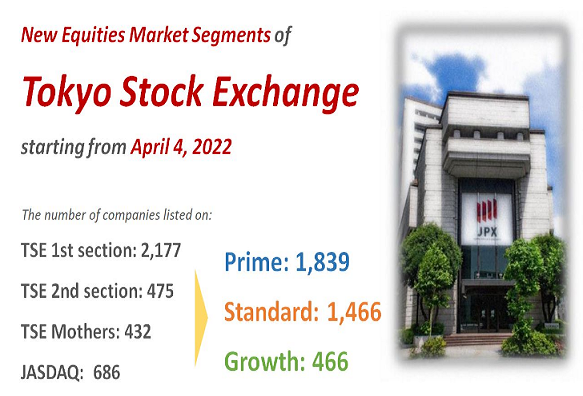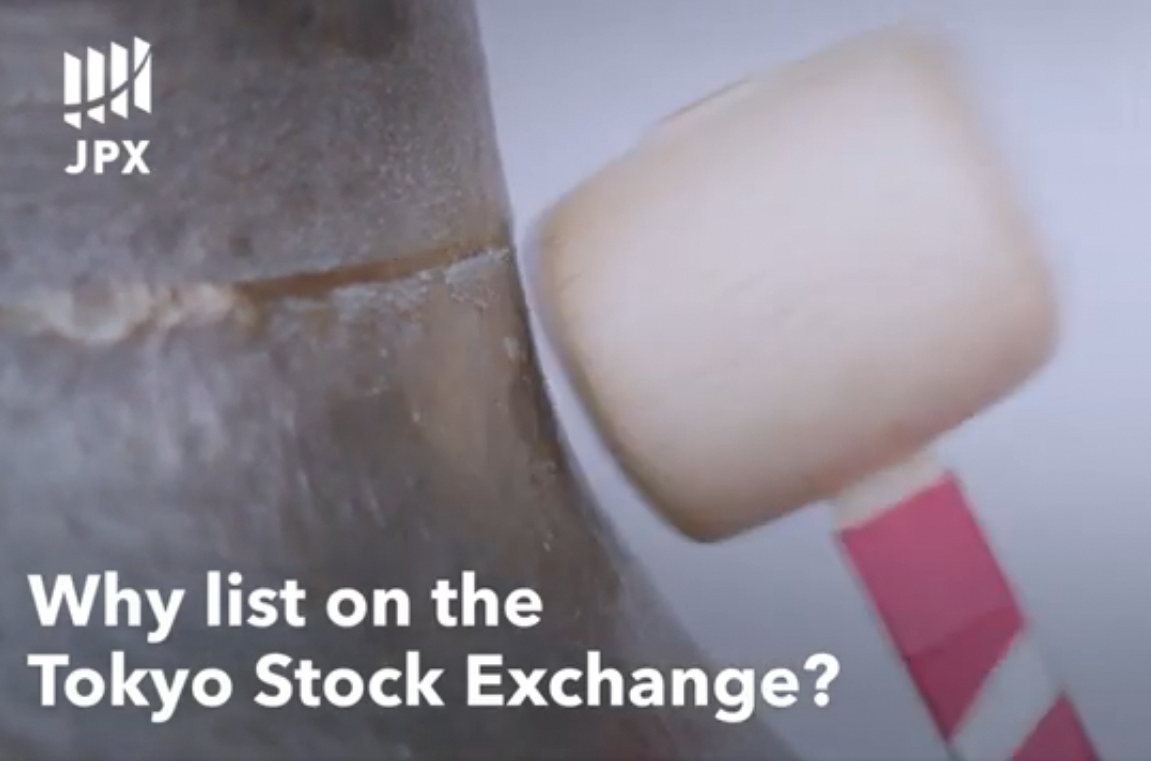TSE Cash Markets
Japan stock splits jump 60% ~~~~

A total of 191 companies in Japan announced stock splits in the fiscal year ended on Sunday, up about 60% from the previous year, lowering the barrier to entry for retail investors by reducing prices.
On Monday alone, 62 companies implemented splits, the most at the start of a fiscal year in 10 years. Mitsubishi Heavy Industries, Suzuki Motor and Mitsui Fudosan executed stock splits for the first time ever, and Fujifilm Holdings had its first in around three decades. Some of the splits were sizable, such as the 10-for-1 divides by Mitsubishi Heavy and Fujitsu.
The overall fiscal 2023 tally is the highest since the Tokyo Stock Exchange in 2018 adopted the minimum trading unit of 100 shares.
The wave of splits comes amid the launch of Japan‘s revamped NISA tax-free investment program, under which annual contributions to “growth” accounts for investing in individual stocks are capped at 2.4 million yen ($15,800). Splits lower a stock‘s price, making it more accessible to retail investors as companies hope to leverage the investment program to attract more long-term shareholders.
The average minimum investment on the Tokyo Stock Exchange‘s Prime market has fallen to about 300,000 yen, well below the 500,000 yen the bourse wants to see, even as the Nikkei Stock Average has soared to all-time highs. That is less than one-sixth of the average at the end of 1989, when the index last hit a record.
Stock splits have spurred trading as retail investors pour money into now-cheaper shares. Among the 138 companies that split their shares between April 1, 2023, and Jan. 1, daily trading volume in the first quarter of this year was seven times as high as it was a year earlier, compared with a roughly 50% rise for the Prime market as a whole. NTT stood out with a 33-fold surge.
Around 70% of companies that split their shares saw daily trading value rose as well, due partly to the broader market rally. The Prime market logged more than 5 trillion yen in turnover on some days.
Stock splits have also brought companies new investors. NTT had 1.57 million shareholders as of last December, a roughly 70% jump from that March, with the majority in their 40s or younger. Monogatari, which operates yakiniku barbeque restaurants, saw its shareholders more than double over the year through last June.
“We regard our shareholders as customers,” a Monogatari representative said. “The increase in shareholders will contribute to the growth of our company.”
Yuki Seto at the Daiwa Institute of Research found that over the 10 years from fiscal 2012, companies that split their stock saw their total shareholders rise 6% on average the following fiscal year.
“If that’s combined with shareholder perks, it becomes easy to get more investors,” Seto said.
Many analysts anticipate even more stock splits in fiscal 2024. “Companies that want to draw more retail investors will probably split their shares,” said Takashi Hiroki, chief strategist at Monex.
But Japanese stocks remain relatively expensive to buy in terms of minimum investments required. In the U.S., shares in Google parent Alphabet, Amazon and Apple can all be bought for less than $200, while Japan still has some stocks with strikingly high minimums, like the roughly $25,000 requirement for Tokyo Electron.
Related links






